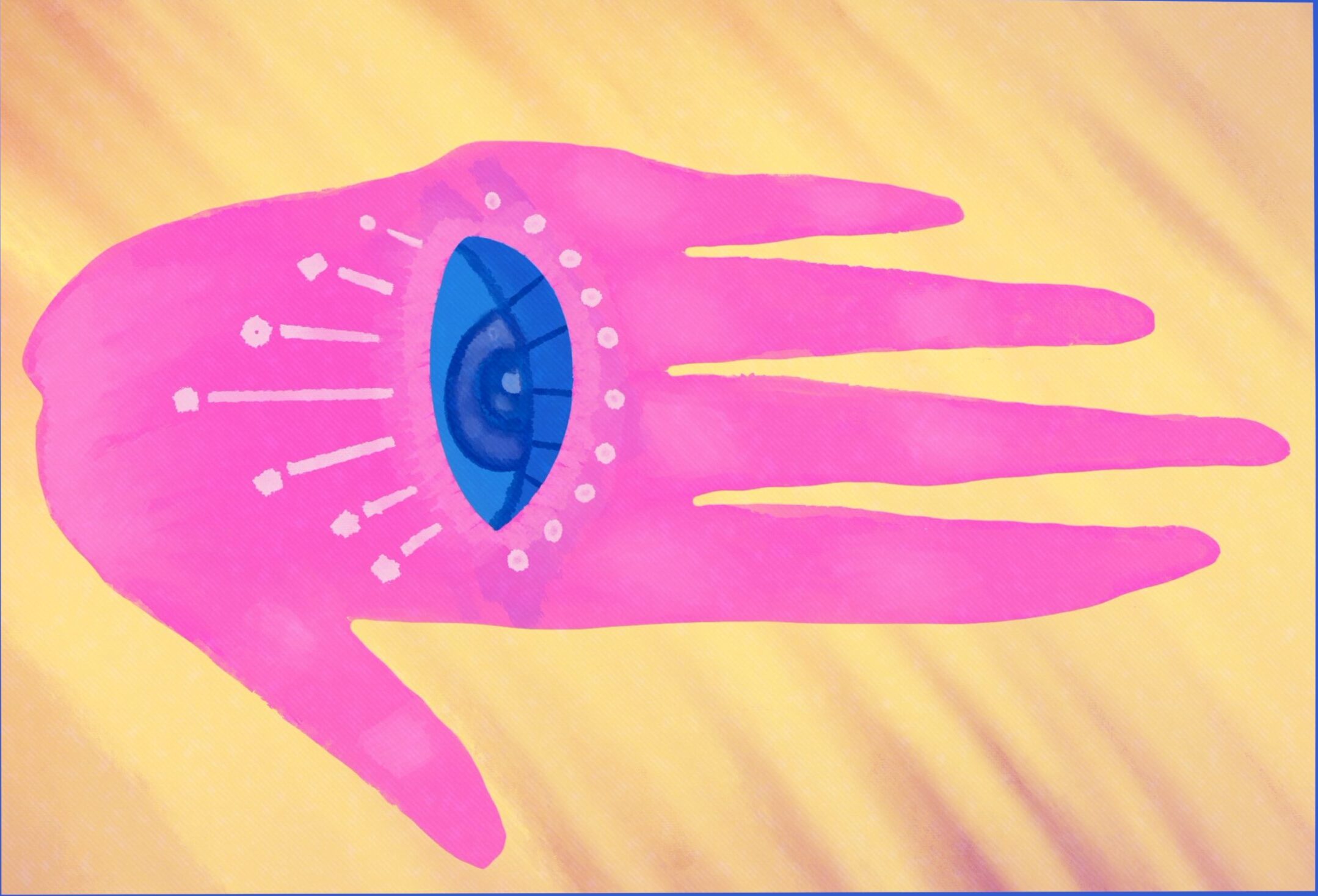”
Written and Illustrated byAmy Gajjar
Spiritual Psychosis and the Commodification of New Age Spirituality.
In today’s world, spiritual awakening has become big business, often sold to the highest bidder. This commodification makes it hard to tell the difference between true enlightenment and outright delusion. Spiritual psychosis, a serious condition where one’s spiritual experiences become unhealthy and disruptive, is on the rise in the New Age spirituality scene. While this condition needs medical attention, the behaviours promoted by New Age spirituality on social media can be a subtle gateway to it. As someone deeply interested in New Age spirituality, I’ve spent countless hours scrolling through the internet, seeking new information on everything from tarot cards to birth charts.
Yet, I realised my interest was more about acquiring knowledge than fully immersing myself in the lifestyle. I was always on the shore, never fully diving in. This kind of surface-level engagement can lead to a distorted view of spirituality. The internet is full of information, much of it misleading or incomplete. Without proper grounding and discernment, it’s easy to get lost in a sea of misinformation. The danger is in taking everything at face value without critical thinking or personal reflection.
“Without proper grounding and discernment, it’s easy to get lost in a sea of misinformation.”
Take, for instance, those targeted tarot readings that urge you to get back with a toxic ex or tell you the initials of your next crush. What starts as harmless fun can quickly turn into something that feeds actual delusions. Sure, there are genuine tarot readers out there, but the recent surge in tarot content has brought an influx of ‘readers’ more interested in your money than in providing real insights. These lofty promises can be dangerous when taken too seriously, leading many to depend on tarot to make their life choices.
As someone who has practised tarot, I know that discernment and balance are key. You need to stay grounded in reality to avoid being swept away by misinformation and delusion. Knowing the difference between what is genuinely meant for you and what you’re forcing to be a sign is crucial. It’s fine to smile at an angel number for motivation, but when you start anxiously attaching meaning to every little sign, it’s time to take a step back.
Another issue plaguing the community is toxic positivity. This is the excessive and ineffective overgeneralisation of a happy, optimistic state across all situations, which can lead to emotional suppression. While having a positive mindset can be beneficial, it’s just as important to feel and process all your emotions. Everyone knows that person who insists on being ‘chill’ and avoiding bad vibes. But life’s bad vibes will come whether you want them to or not. Toxic positivity can stunt your emotional growth and create a dissonance towards issues that need addressing. It becomes a form of escapism, and when taken to extremes, it can be really harmful.
Retreats are another example. They’re often marketed as a path to enlightenment, but many of them are more about making money than fostering personal growth. Spiritual influencers with huge followings promise life-changing experiences for hefty price tags, convincing people to follow them anywhere. Some retreats do offer real solace and community, but others expose participants to substances and practices they’re not ready for or that are improperly administered, leading to serious consequences.
“Knowing the difference between what is genuinely meant for you and what you’re forcing to be a sign is crucial. It’s fine to smile at an angel number for motivation, but when you start anxiously attaching meaning to every little sign, it’s time to take a step back. “
The commodification of New Age spirituality has also sparked debates on cultural appropriation versus appreciation. There’s a real question about whether practices and tools are being appropriated from marginalised communities and sold for profit, stripping them of their original context and significance. The problem isn’t in the practices themselves or in seeking enlightenment, but in those who exploit spiritual practices for money.
Spirituality should be a deeply personal journey, not dictated by social media trends or commercial experiences. True spiritual growth requires introspection, patience, and a willingness to face uncomfortable truths. It’s about finding a balance between seeking guidance and trusting your intuition.
In conclusion, while New Age spirituality offers valuable insights and practices, it’s essential to approach it with caution and discernment. Spiritual psychosis and toxic positivity are real concerns that can arise from an unbalanced engagement with spiritual practices. Stay grounded in reality, feel and process all your emotions, and critically examine the sources of spiritual guidance. Only then can you navigate the complex landscape of New Age spirituality without losing sight of what truly matters: personal growth and genuine enlightenment.





